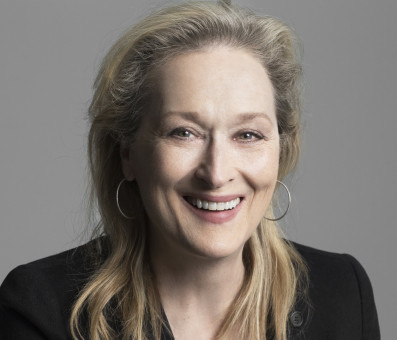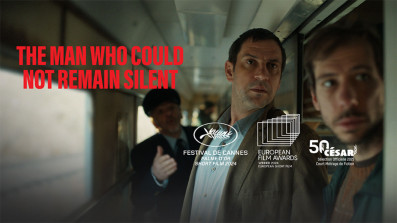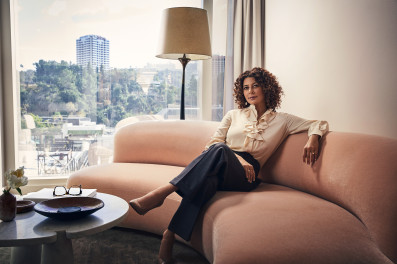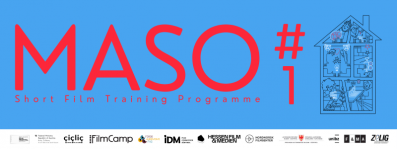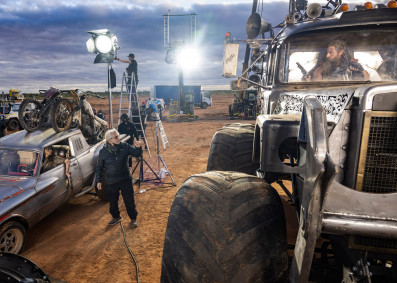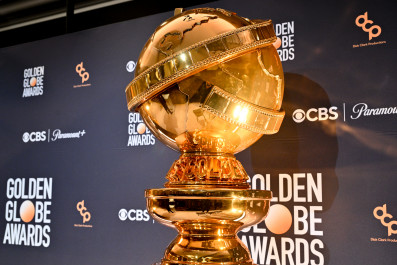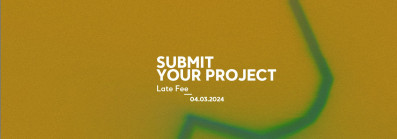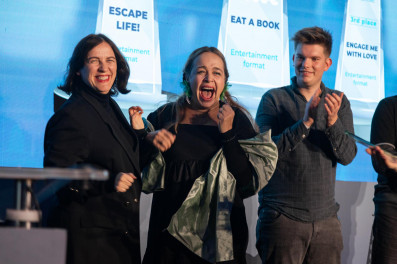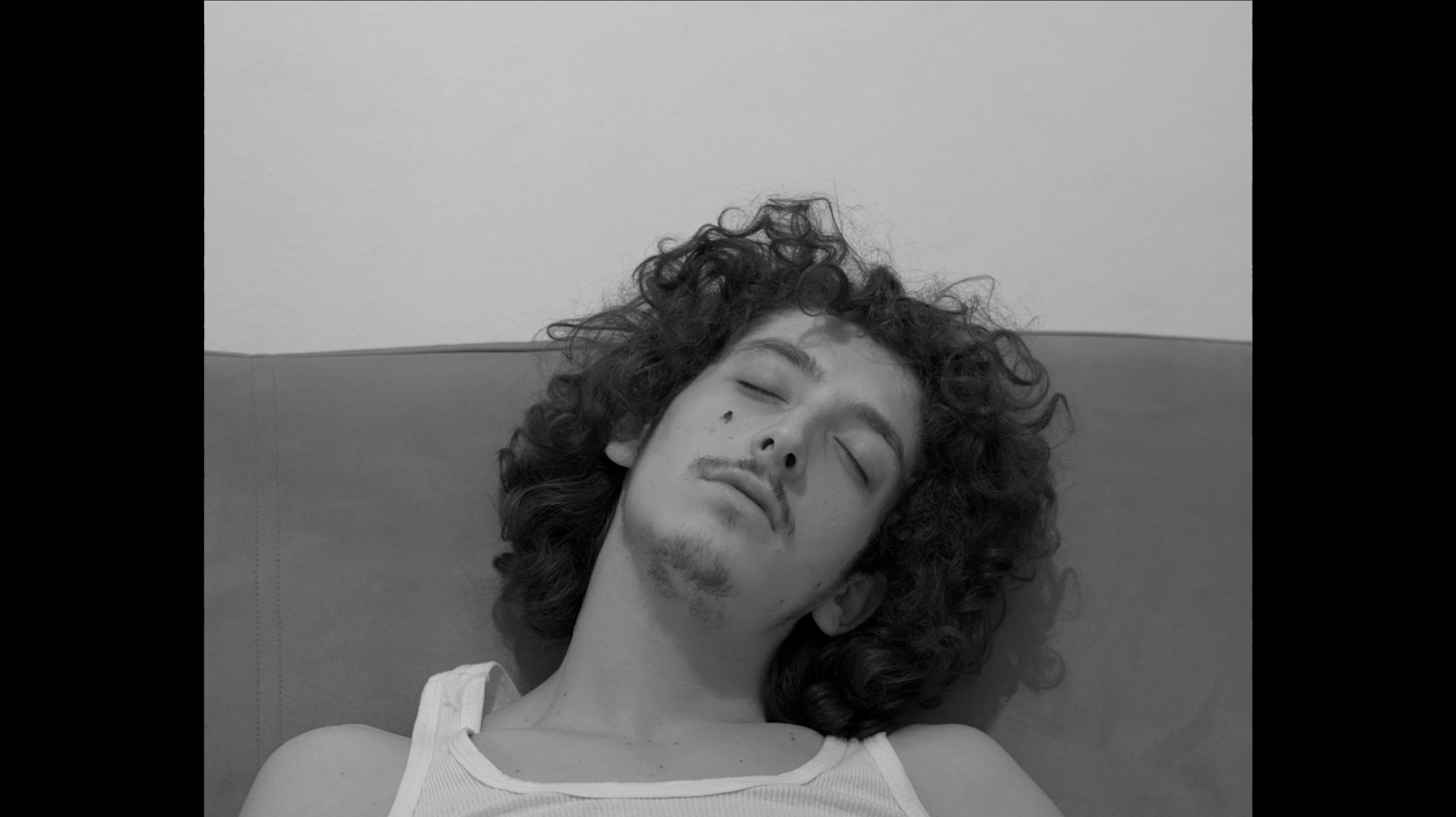
Interview with Donart Zymbert the director of "BZZZ"
All these films and their success internationally shows that Kosovar cinema is on the rise
At the beginning of the 2020s, Kosovar cinema is on the rise. Now we witness that brand-new Kosovar talents emerge from prestigious film festivals like San Sebastian, Toronto or Berlin. While the idea, that Kosovar cinema will take the top within a decade like Romania in the 2000's or South Korea in the 2010's, was getting adamant in my mind, I met with Donart Zymberi, a young cinephile and aspiring film director from Kosovo. Then, I watched his first student film called BZZZ and thought that it is rough for sure because it's the first for him, but there is something shining in it. So I interviewed him about BZZZ, his personal history into cinema and Kosovar cinema history.
At first, why do you want to become a film director? How did you become a film director?
I had an interest in film from an early age, but I never knew until I was about 16 that I might seriously pursue it. Even then I didn't decide on it, I just kept it open as an option. When I was 17, I was part of a Documentary Film Workshop (organized by DokuFest) in which I made a very short documentary. By then, I sort of knew I wanted to make films but I didn't know if I should go to film school or not. After high school, I enrolled in university to study Computer Science. After half a year, or less I decided that I was going to abandon it and focus exclusively on film. During that sort of gap year, I expanded my knowledge of cinema and studied it autodidactically. I tried to watch and read as much as I could during that free period of my life. It was wonderful, to be honest. I sometimes watched 3-4 films a day and wrote about them and taught myself that way. At this point, I was fully committed to film and decided that I was going to pursue directing and go to film school.
When you started to be interested in films, what films did you watch? And what films could you watch in Kosovo at that time?
In Kosovo, it's easier to watch foreign films than films made in Kosovo. Firstly because there aren't that many films being made(there are more now than in the past though), and secondly, the ones that are, it's hard to find them anywhere. Especially at the time when I grew up, because of the situation, a few years after the Kosovo War, film and art weren't really the main focus in the country. In my town of Gjilan specifically, there is no cinema. There was in the past and my dad's generation and others used to watch many premieres of films both international and Kosovar films, but after the war the object where the cinema used to be was privatized after the war and now the place has been turned into a residential area. It's quite sad because there are a lot of cinephiles here and the options to watch films on the big screen are limited. In the capital city, Prishtina, there are three main cinemas, a Multiplex type cinema called Cineplexx that shows the newest Hollywood films, ABC cinema which has a similar programme but it's an older cinema and Kino Armata which organizes showings of many old and contemporary culturally relevant films. I helped organize a showing of films from the Experimental Film Society there but it got cancelled because of the pandemic. To return to the point, the early films I watched as a child mostly consisted of foreign cinema, be it American or sometimes European and Asian films. What we could watch in Kosovo at the time were mostly TV Shows(sitcom types), I don't remember old Kosovafilm films or other Albanian films being televised that much except a few historically relevant films like The Great Warrior Skanderbeg and Second November which dealt with historical figures and events important to Albanian history.
What is the starting point of "BZZZ"? Your own experience, news in Kosovo or some other things?
The starting point for BZZZ were my many experiences with insomnia caused by insects such as flies and mosquitos. I remember being kept up almost till morning at times because of a fly that I couldn't catch. And the suffering it gives you at times is crazy. Looking at it objectively, a fly not letting someone sleep isn't anything tragic. There are large-scale conflicts in the world and people die on a daily basis. But during the time when a fly bothers you the way it does my character in this film or me in real life, there is nothing more important in the whole world than killing that fly. It becomes the most important conflict in existence(for you at that time). And this idea of how important the fly is in that particular moment when all you want to do is sleep peacefully is why I decided to make the film, and it is based exclusively on my own experiences with flies at night.
I heard that there are many restrictions, including without dialogue, when you made this film. I want to know about them. How many restrictions are there? How challenging are they to your filmmaking, especially without dialogue?
Yes, this was my first student film, and there were a lot of restrictions. These restrictions influenced the story I chose to tell. The fact that we weren't allowed any dialogue, made me more oriented to this story because it had only one character. If I did some other stories I had in mind at the time with multiple characters, the no-dialogue thing would've felt contrived and archaic. And I didn't want that. That is why the fly became the perfect antagonist, it says no words except its buzz. Other restrictions included the 4:3 square format, which I liked nonetheless and the black and white cinematography, which also gives the film a somewhat surreal look for me. The final restriction was that the running time had to be around the 5th-minute mark. Anything considerably longer than that was not allowed.
I'm impressed with its unique atmosphere in the film. Sometimes clumsy like the protagonist trying to kill a mosquito, sometimes lovable like him unable to kill, but always funny as hell. As a director and editor, how did you construct this whimsical, peculiar atmosphere?
As a director, I had to give the character space when attacking the fly and show the whole-body movements and the blocking. I wanted people to see him move and jump up and down through the spaces, and see as he falls down one time. It would've been easier to do this "stunt" through montage but I loved the idea of him falling almost into the camera and it all being captured in one shot. It makes it feel more realistic and not-constructed for me.
And I'm interested in whether that monochrome cinematography is one of the restrictions or not. But even if it is, its cinematography is effective to reinforce the film's profound hilariousness like a silent cinema. With you cinematographer Kushtrim Hoxha, how did you make this style of cinematography?
Yes, as you correctly observed, the monochrome cinematography was one of the restrictions. But I might've chosen to film it in that style even if it wasn't. And as you say it feels like a reference or homage to silent film at times. Kushtrim Hoxha is also a directing student with me but he is more focused in cinematography. I liked working with him on my first project. I am a very visually minded director so communication with the DP is really important to me. I like to know every shot I'm going to make before I film, and I had devised a shot list and most of the time we executed what was in the shotlist. But there were also a few moments where we improvised and selected the shot on-location and I have to say that he is really good at improvisation and I was happy to have him on set.
The core of this film is definitely the acting of Drin Lumi. By your direction, his presence is sublimated into the magnificent whimsicality of historic silent actors, making me smile a lot. So, how did you meet with him? What is the biggest reason to choose him for this film?
Drin Lumi is an acting student at the university in which I study film. I had decided to talk to him about the role after seeing him in another student film and liking his performance there. He agreed to meet and we talked. He surprised me positively because he had a real knowledge of cinema and film history not common for a young actor(no offence to any actors lol). Then I talked to him about the role and how the film was going to be. He accepted the role. A few days before shooting, we went to the location and did rehearsals, basically doing every scene there without the camera. We figured out the blocking, the movement in relation to where the camera was going to be and everything in between. He was very quick to learn and he is a natural actor in the sense that he doesn't really act but he lives through whatever his character is living through at that time in the story. He is a method actor in that sense. To get back to the reasons why I chose him, I saw he had a sort of presence in front of the camera in that other student film he was in. I liked his natural acting style there. Also, his movement is really good, and this film demanded that in the scenes where he is chasing the fly. His hair is another quality that adds to the film, I don't know exactly what, but I know it visually when I see it. He was great to work with as well, very understanding and supportive when things are not going the way you want them to, which happens sometimes when you're in a film set.
When cinephiles want to know about Kosovar film history, what films should they see? And why?
Starting from the past, there are interesting old films from the Kosovafilm era, from directors like Isa Qosja, Ekrem Kryeziu etc, but it's hard to find these anywhere except on Youtube with poor quality and no subtitles. I really think an effort should be made to restore some of these films and subtitle them so that foreign cinephiles can see them. But at the moment no one cares that much it seems. I would, myself, gladly help subtitle some of them if they were restored.
Looking at the present, you have new films which, a few might be available I think of services like Amazon where you can pay to rent them, but most are not. There's GjirafaVideo, a video service from Kosovo which shows some new films. There are shorts like Ballkoni and others there which people can watch for free.
If you choose one favourite Kosovar film, what film do you choose? And I want to know why. Is there a personal memory?
If I had to choose one, I would go for Isa Qosja's Rojet e Mjegulles (Keepers of the Fog), a fantastic film about censorship and authoritarianism. It is one of the most Orwellian films to come out of the whole Balkans in my opinion, and it deserves much more recognition than it has. And the film wasn't being political just for the sake of it, but it was a reflection and a critique on the Yugoslav society of the 80s(when Yugoslavia began to decline and ethnic tensions were rising). It is a beautifully executed, symbolic, metaphorical and oftentimes surreal film. And symbolism was a very fitting tool to use in this film where the main characters are persecuted precisely because of the perceived symbolism in their works and writing. It also has fantastic performances by both Xhevat Qorraj and Enver Petrovci. It is quite a daring film considering the time when it was made.
How is the current situation of Kosovar cinema? From the outside, it becomes magnificent. New talents appear at prestigious film festivals like, for example, Edon Rizvanolli at Karlovy Vary, Ismet Sijarina at San Sebastian, Antoneta Kastrati at Toronto and Visar Morina at Berlin. But how do you see the current situation from inside?
I think the situation is not bad, to be honest. There are new directors appearing in festivals almost every year. All these directors you mentioned are doing good at the moment. Last year, Antoneta Kastrati's Zana not only did well in festivals but it also showed in cinemas here and the public really liked it. Ismet Sijarina's Cold November was also a really interesting film about the pre-war era in Kosovo which premiered at San Sebastian. Another film I would like to mention is Blerta Zeqiri's The Marriage, which I think dealt with an LGBTQ story in an authentic way. All these films and their success internationally shows that Kosovar cinema is on the rise, and the future will perhaps give us more upcoming films and directors that will succeed even more.
Do you have a plan for a new short or feature? If so, please explain to Japanese readers about it.
At the moment, I am thinking about new ideas for my next short student film and working on different screenplays for the future but nothing specific or anything I can talk about at this stage.



